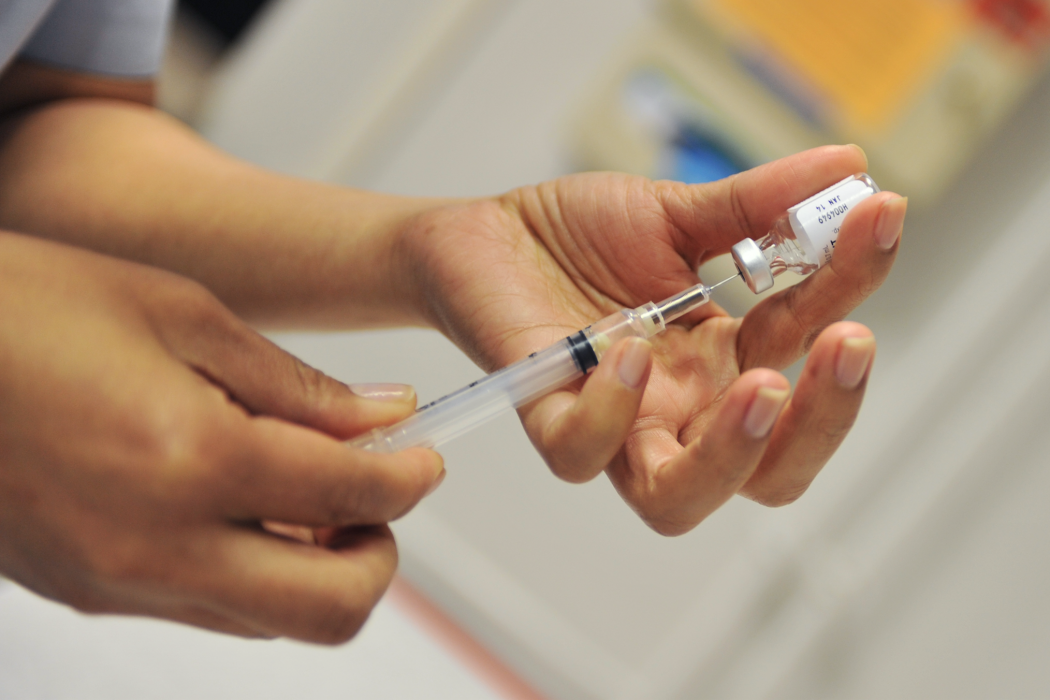As of October 2017, McGill Student Health Services will no longer provide vaccines due to a new law passed by the Quebec Government that makes it illegal for doctors to charge a fee for services that are already covered by the Régie de l’Assurance Maladie du Quebec (RAMQ). This legislation has blocked physicians in private clinics from being able to perform minor procedures at their offices, instead requiring patients to go through their public health centres.
In September 2016, then-Health Minister Jane Philpott, wrote a letter to the Quebec government threatening that Ottawa would deduct money from the province’s federal health transfer system unless doctors stop charging patients for services such as ultrasounds, colonoscopies, blood work, and vaccinations, which are already covered by RAMQ.
She wrote, “si une province ou un territoire permet la facturation des services médicalement nécessaires financés par l’État, y compris les frais imposés aux patients dans les cliniques, des déductions équivalentes s’appliqueront obligatoirement aux paiements du Transfert canadien en matière de santé versés à cette province ou à ce territoire.”
“If a province or territory permits the billing of necessary medical services that are already provided by the government, including fees imposed on patients in clinics, equivalent deductions will be mandatorily applied to Canadian transfer payments in matters of health for the province or territory.”
While the Canadian government takes the stance that the new structure is more efficient for the province, others feel that it is less efficient for patients. Louis Godin, President of Federation des Médecins Omnipraticiens told the Montreal Gazette that “those who once went to their doctor’s office for blood work will now have to go elsewhere to private laboratories, or hospitals and other institutions in the public health sector…the population will have fewer choices for certain health services and that means a net loss in terms of accessibility to health care.”
Some Quebec residents agree with Godin and believe that this change won’t benefit them at all, but instead that it will add more steps to a once simple process. “In order to get services that were previously available at doctors and nurses [offices] in different locations, Quebecers will now be forced to register in already overworked and understaffed CLSC clinics,” said Samuel Vandry-Groleau, a McGill student and Quebec resident. “Quebecers should be able to choose if they want to wait at the CLSC or if they want to pay extra to get it done at their doctor.”
There are others who hope that doctors will continue to offer vaccines by absorbing the costs into their salaries. According to Quebec’s Minister of Health and Social Services Gaetan Barrette, doctors make an additional $83 million per year from charging accessory fees to patients, which some feel is an exorbitant amount.
Dr. Michael Libman, a physician at the McGill University Health Centre feels differently. According to Libman, it is unreasonable to expect doctors to absorb these costs into their salaries. These costs are not comprised solely of the price of the vaccine, but also of the salary of the nurse who administers it. Libman contends that physicians were only charging patients fees that covered the cost of the vaccine, and not trying to make a profit.
“I would say I’m on both sides,” says Libman. “I certainly understand that this should be a service available to people and to me it is unfortunate that the government doesn’t view it as a type of insured health care. Instead they’re saying if doctors don’t pay out of pocket, it won’t be offered in the same way. That’s not how I think vaccines should be delivered, it should be like the rest of our healthcare, a government service.”
Various clinics have elected to offer a full range of private services in the wake of the enactment of the law. Karen Moore, of Clinique du Voyageur du Grand Montreal, told The Bull & Bear that “The provincial ban on accessory fees has forced us to evaluate our business practices to ensure that we can continue to deliver the best medical solution and a superior customer experience. There are significant costs associated with delivering a vaccination that are often overlooked, like storage and disposal. These operating costs, when coupled with the inability to charge an accessory fee, have made it unsustainable for us to continue to deliver public health vaccines.”
As a result of this change in the law, McGill Health Services has had to severely restrict the range of vaccines offered to students. Specifically the Flu Shot, HPV, Meningitis, and Hepatitis A, B, and C vaccines are no longer being offered.
McGill Health Services urges students to acquire the vaccines they need from pharmacies and bring them to McGill Health Services for a nurse to administer. Alternatively, they encourage students to get vaccinated off campus.
Some students, such as those with chronic illnesses, or pregnant women, are exceptions to this law, and remain eligible to receive vaccines from McGill Health Services.
As of Fall 2017, the decision to ban accessory fees is under review by the Quebec government. To find a vaccination clinic near you, visit https://vaccines411.ca/en/.








